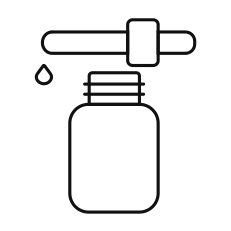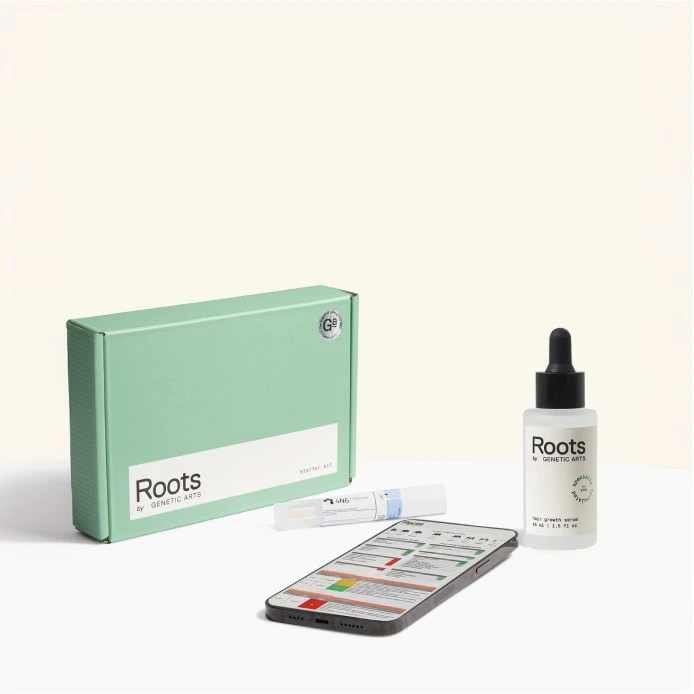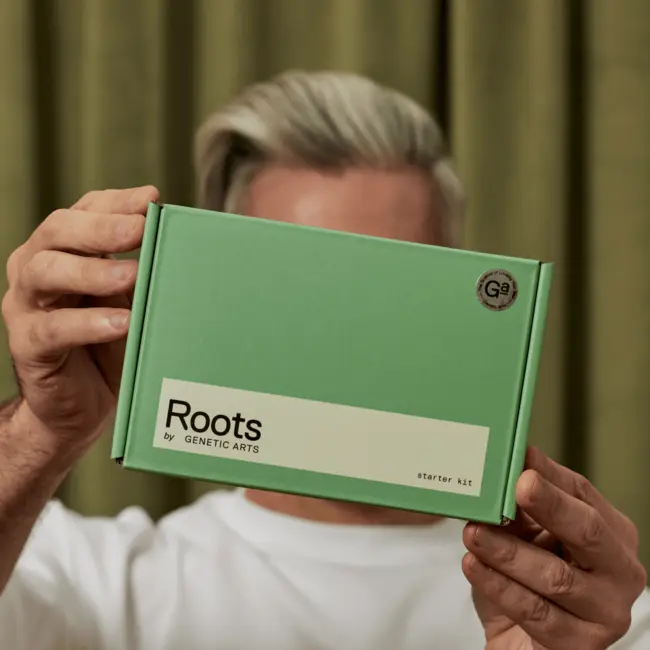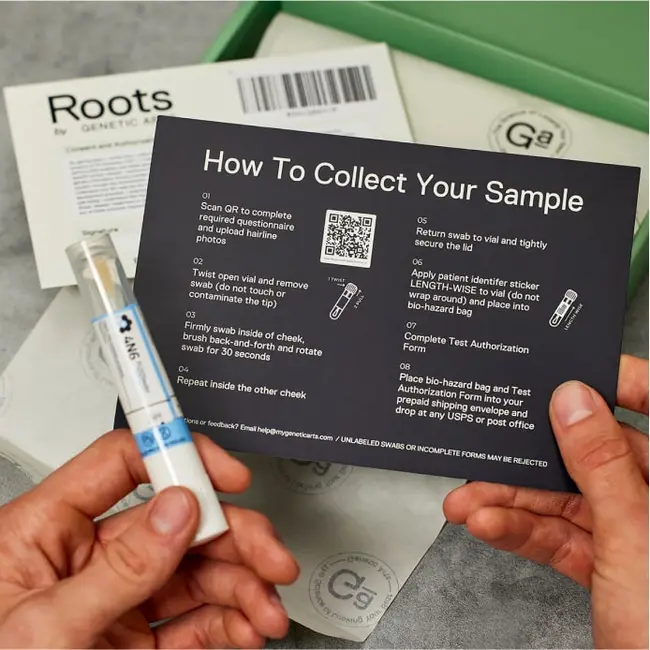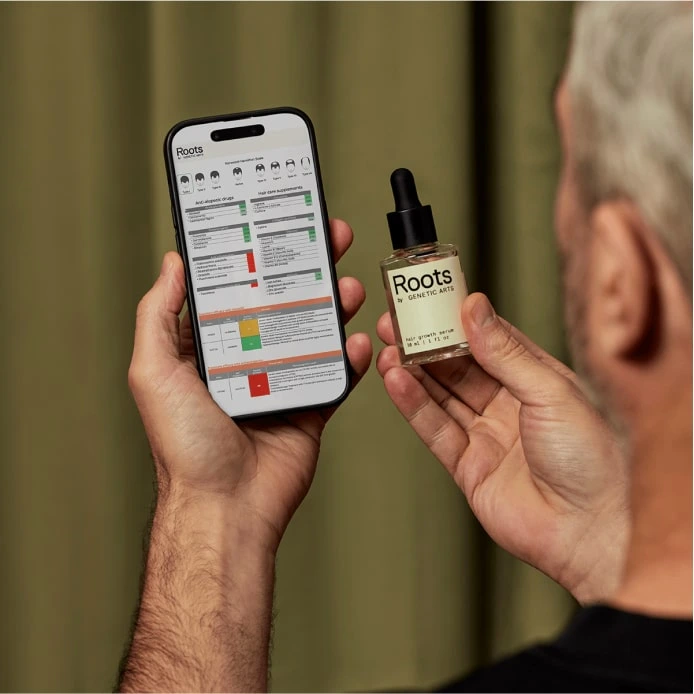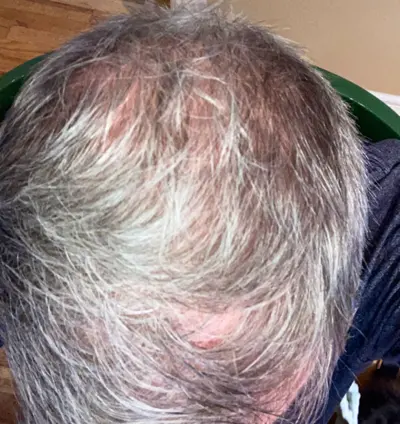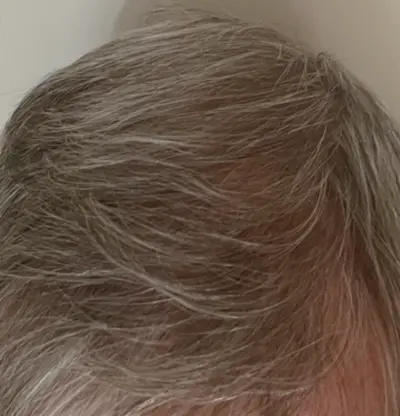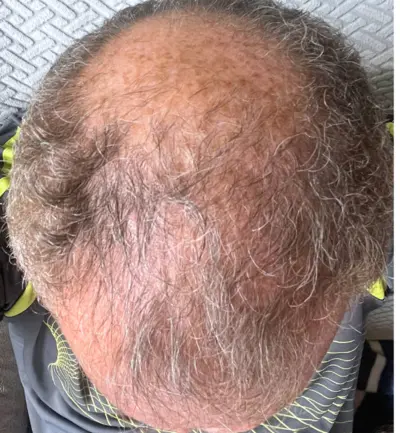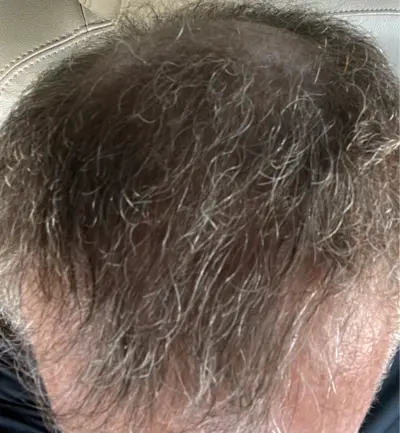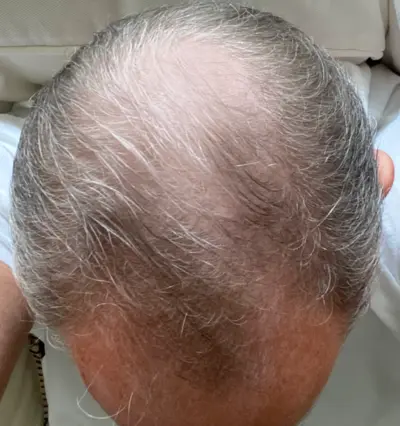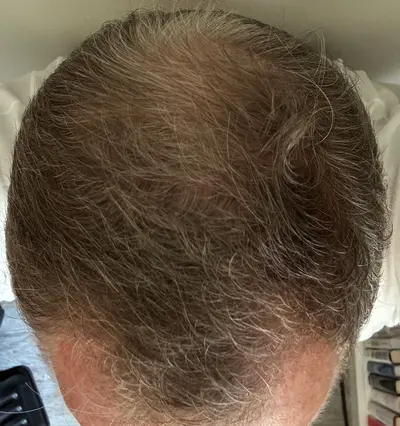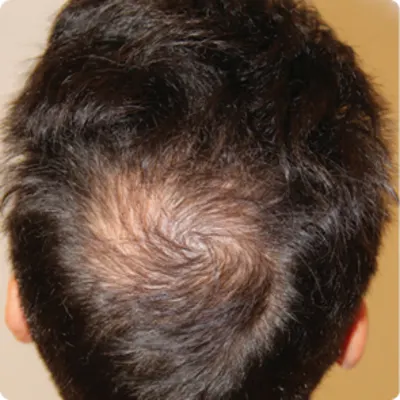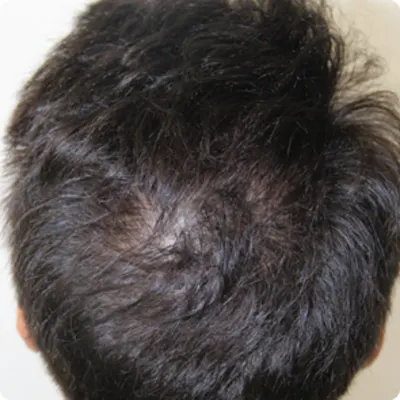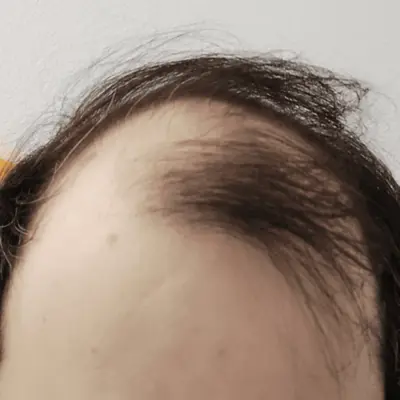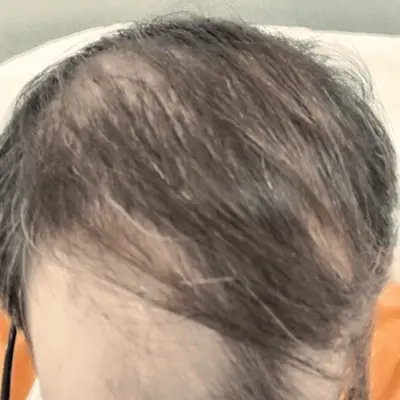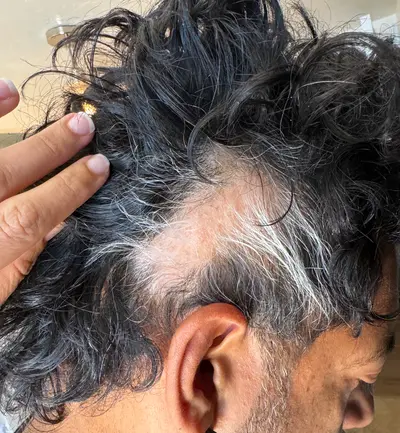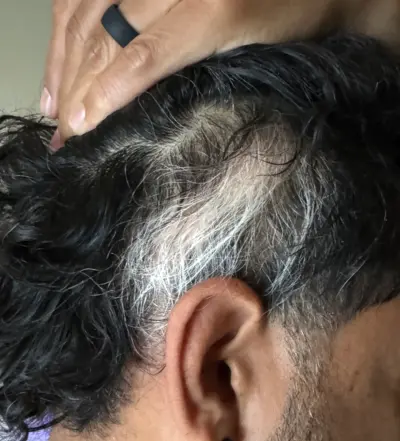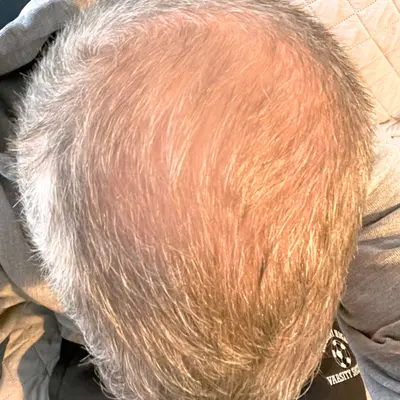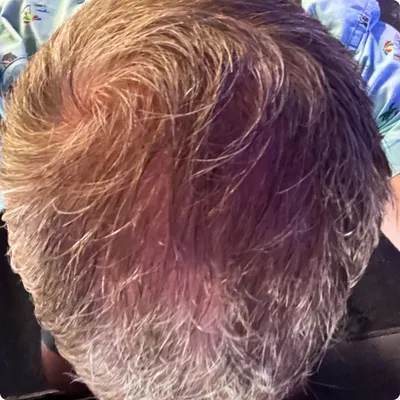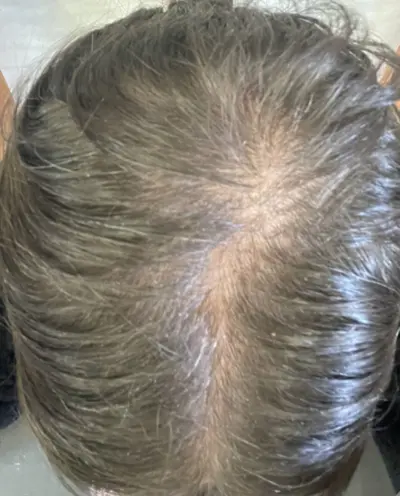-
SULT1A1
(Sulfotransferase 1A1): This gene helps predict how well your body activates minoxidil, a key ingredient for hair growth. Variants may indicate whether you need a higher dose or special additives like tretinoin for best results.
-
SRD5A1 & SRD5A2
Steroid 5-Alpha-Reductase: These genes affect how much DHT (a hormone linked to hair loss) your body produces. High activity can increase hair loss risk, suggesting the use of DHT-blocking treatments and selecting between finasteride, dutasteride, or spironolactone, which works as an anti-androgen to block DHT. Additionally, melatonin can act as an anti-androgen and may be used to enhance the effects of these treatments.
-
MTHFR
Methylenetetrahydrofolate Reductase: This gene influences your body’s folate levels, which are essential for healthy cell growth, including hair follicles. Variants may impact your need for folate supplements.
-
ACE
Angiotensin-Converting Enzyme: ACE affects blood flow. Variants here may determine how well circulation-boosting treatments, like minoxidil or caffeine, work to enhance hair growth.
-
GPR44-1 & GPR44-2
Prostaglandin D2 Receptor: These genes help us understand your sensitivity to prostaglandin D2, a compound that can cause hair loss. Cetirizine, a prostaglandin D2 inhibitor, may be effective for managing hair loss by blocking this pathway.
-
PTGFR-1, 2, 3
Prostaglandin F Receptor: These genes impact how well your body responds to latanoprost, a treatment that promotes hair growth through prostaglandin pathways. Variants in these genes can indicate whether latanoprost will be effective for you.
-
COL1A1
Collagen Type 1 Alpha 1: This gene affects collagen production, which supports hair structure. Variants can influence your hair’s strength and resilience, and whether collagen supplements may help.
-
PTGES2
Prostaglandin E Synthase 2: This gene plays a role in producing prostaglandins that help hair growth. Variants can indicate how effective treatments like minoxidil might be for you.
-
NQO1
NAD(P)H Quinone Dehydrogenase 1: This gene is related to your body’s antioxidant defenses. Low activity may mean oxidative stress is contributing to hair loss, suggesting antioxidant treatments.
-
BTD
BTD (Biotinidase): This gene helps your body use biotin, an important vitamin for hair growth. Variants may reveal whether you need extra biotin to support healthy hair.
-
CYP19A1
Aromatase: This gene controls how much testosterone is converted to estrogen. Low activity may lead to higher DHT levels, which could accelerate hair loss, guiding the use of anti-androgens like spironolactone, 17-α estradiol, or melatonin, which can help reduce DHT production and enhance hair growth effects.
-
SLC23A1
Vitamin C Transporter: This gene controls how well your body absorbs vitamin C, which is essential for hair strength and health. Variants may suggest a need for supplementation.
-
GR-alpha
Glucocorticoid Receptor Alpha: This gene affects how your body responds to corticosteroids, which can reduce inflammation that might harm hair follicles.
-
CRABP2
Cellular Retinoic Acid Binding Protein 2: This gene is involved in how your body uses vitamin A, which supports a healthy scalp and hair. Variants may suggest vitamin A supplementation like Tretinoin.
-
ZPR1
Zinc Finger Protein ZPR1: This gene is linked to zinc levels, and variants might suggest the need for zinc supplements, which are important for hair health.
-
DMGDH
Dimethylglycine Dehydrogenase: This gene affects your body’s selenium levels. Low selenium can impact hair health, so variants here might suggest the need for supplementation.
-
MUC1
Mucin 1: This gene is related to magnesium absorption. Variants could indicate if magnesium supplementation might benefit your hair health.


